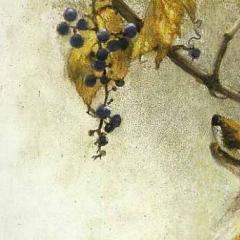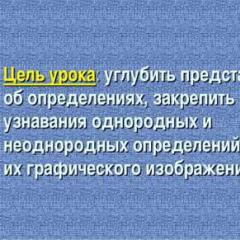Summer linguistic school. A language school abroad is the key to success in learning a foreign language! How does LLS work?
What is LLS
Summer linguistic school is a scientific event in which children and adults participate. Over the course of 10 days, several dozen people relax, study and work together and do this not because we have compulsory education (this does not apply to vacation schools), but because they enjoy it.
Who conducts LLSH
The summer linguistic school is organized by the National Research University " graduate School Economics" and the Moscow Center for Continuing Mathematical Education with the support of Yandex.
How does LLS work?
This is the school schedule. In the morning, two general lectures are given daily, devoted to linguistics or related sciences, such as literary criticism or mathematics. Lectures are required for schoolchildren and students. But usually the teachers themselves come to listen to their colleagues. School guests are usually impressed not only by the stunning silence and concentrated attention of young listeners during the lecture, not only by the children’s questions, indicating their interest in the subject of the lecture, but also by the applause heard after the lecture.
Before lunch after lectures - free time. After lunch - 3–4 seminars. Attendance at two seminars is considered a mandatory minimum, but there are always students who attend all classes without exception. Interestingly, the enthusiasm of the participants does not fade until last day. They not only attend seminars, but also take an active part in them.
Every day after dinner there are various language, literary, mind games and competitions. The Linguistic Olympiad and the “Word Fair” - a competition of linguistic puzzles (everyone takes part in two roles: inventing their own puzzles and solving others), the Maxim Casino (intellectual and theatrical games with book prizes), “What? Where? When?”, the game “Literary Masquerade”, games with the English language, “Intellectual Fireworks”.
Who comes to LLSH
The teaching staff of LLS is the envy of any university. Well-known scientists, authors of scientific monographs, textbooks and, very importantly, popular books on linguistics speak to the children. In addition to university teachers, teachers from Moscow schools also come to the Summer School.
Schoolchildren are selected mainly from the winners of the Traditional Olympiad in Linguistics and other city Olympiads, as well as from among the participants of the school linguistic club at the Russian State University for the Humanities, Higher School of Economics and MCNMO. High school students from other Russian cities often come to the Summer School.
Students play a special role in LLS. These are mainly students from Russian State University for the Humanities, Moscow State University and Higher School of Economics. Students not only help in organizing various events, but also attend lectures and seminars together with schoolchildren. In addition, the Summer School provides them with a unique opportunity to communicate with professional linguists in an informal setting.
The summer linguistic school gives schoolchildren a lot: they get a chance to join modern achievements linguistics, test your abilities and inclinations, determine your professional interests. Many of them, having attended the Summer School, subsequently choose linguistics as their specialty.
Literature
Summer humanitarian (linguistic) school. - M.: MIPKRO, 1996. 22 p., ill.
Krongauz M. A., Muravenko E. V. School on vacation // New pedagogical journal. 1997. No. 3. St. Petersburg. pp. 64–72.
Linguistics for everyone: Winter linguistic school - 2004 / Ed.-comp. E. S. Abelyuk, E. V. Muravenko.- M.: Dep. Education of Moscow, NIIRO, 2004. 256 p.
Linguistics for everyone. Summer linguistic schools 2005 and 2006 / Ed.-comp. E. V. Muravenko, O. Yu. Shemanaeva.- M.: MTsNMO, 2008. 440 p.
Linguistics for everyone. Summer linguistic schools 2007 and 2008 / Ed.-comp. E. V. Muravenko, A. Ch. Piperski, O. Yu. Shemanaeva.- M.: MTsNMO, 2009. 488 p.
Classes are conducted by leading, including the most elite and prestigious institutions, and include the best linguistic and academic programs. As a rule, training takes place in June, July and August and has different duration options.
The training schedule includes:
- Language lessons
- Additional activity (sports, creativity)
- Academic disciplines
- Cultural and entertainment events (excursions, holidays).
Many foreign education centers are very popular and regularly occupy high places in ratings, included in the top according to various indicators. Vacation courses attract Russian and foreign schoolchildren and students and have excellent reviews from the participants. The absolute leaders in the number of summer education offers today are and, however, the list of states offering active recreation is quite extensive, and, in particular, includes:
- Canada
- Czech Republic
- Ireland
- Portugal
- Belgium
- Cyprus.
The benefits of studying abroad include:
- A combination of language lessons, sports, creativity, academic studies and a cultural and entertainment program.
- Opportunity to significantly improve your knowledge. Add to list available languages includes not only the most common languages in Europe, but also many others, such as Czech.
- Prices and training costs vary widely, so everyone can choose the course that suits them.
- High level of organization. Thanks to high standards education, you can be sure that all aspects related to learning will be performed to the best of your ability.
- Relaxation and activity. There are various areas: sports, creativity and hobbies. The cultural and entertainment program provides an opportunity to have a fun holiday and relax.
- Academic component. Many institutions offer rigorous training in certain disciplines.
- International composition. You can meet participants from any country in the world, get acquainted with different cultures and make friends.
- An opportunity to join the life of the school/university. Many schoolchildren use summer courses as a “springboard” for admission, or are excited about the idea of getting an education abroad.
The courses are designed for any age group, starting with the youngest, and have their own characteristics. For younger students Intensive or standard lessons are offered in the chosen language + sports, creativity and active recreation. Training can have a different focus:
- Academic. Selected disciplines/subjects are studied: mathematics, computer science, biology, chemistry, physics and many others.
- Sports (athletics, football, tennis, basketball, swimming, extreme sports and many others)
- Creative (music, art, theater, cinema, dance and others).
The institutions where vacations are held have beautiful campuses with sports grounds and art centers where you can successfully improve your skills under the guidance of coaches and mentors. Lessons are held in small groups of 10 people (maximum), which allows you to build trusting relationships and pay attention to everyone. The number of language lessons depends on the specific camp, but usually it does not exceed 20 lessons per week, free time and weekends are devoted to excursions and activities. The youngest children are always supervised and a guardianship system is provided. Education for middle and high school age groups are organized on the same principle, but are characterized by a more intensive program and the development of professional qualities, such as:
- Teamwork
- Public speaking
- Preparation and defense of reports, presentations and research
- Critical thinking and standing up for your opinion.
There are three main accommodation options available for the duration of your studies:
- Residence. The most common and popular option. Single- and double-bed rooms are available in dormitories. Employees monitor security around the clock and help participants in resolving all issues. Includes a balanced diet (3-5 times a day).
- Host family. A separate room in the house is provided. All families undergo careful selection by employees. Breakfast and dinner are at home, and lunch is at school. Children spend time with their family, attend events and walks, and become more familiar with the country’s culture and way of life.
- Individual accommodation. If the first two types are not suitable for some reason, you can rent an apartment/apartment. This option is popular, for example, among parents with very young children. It is worth considering that not all schools provide the possibility of separate accommodation.
The cost of participation varies depending on the institution/intensity and other conditions. The price usually includes:
- Language lessons
- Academic lessons
- Cultural and entertainment events
- Tutorials
- Accommodation and food expenses
- Medical insurance.
Additional charges:
- Air travel
- Visa application
- Pocket expenses.
It should be taken into account that, despite the large number of offers, the choice and booking of a course must be made in advance, since many educational institutions, especially elite and prestigious ones, have a limited number of places. For admission, you must provide the following documents and fulfill some conditions (the list is approximate):
- Application (standard form)
- Certificate of language proficiency (if necessary)
- Recommendations from teachers at your place of study
- Agreement to comply with the rules of routine and behavior
- Timely payment.
Examples of summer schools:
- , UK (English). Available programs: exam preparation, English + disciplines (more than 20 sciences), medical school, Oxbridge. Cost: from £1,300 per week.
- , Czech Republic (English, Czech). Activities + rest and entertainment; bilingual courses. From 890 euros for two weeks
The summer linguistic school is held with the support of ABBYY and Yandex.
History and description.
What is LLS
Summer linguistic school is a scientific event in which children and adults participate. Over the course of 10-12 days, several dozen people relax, study and work together and do this not because we have compulsory education (it does not apply to vacation schools), but because they enjoy it.
How does LLS work?
This is the school schedule. In the morning, two general lectures are given daily, devoted to linguistics or related sciences, such as literary criticism or mathematics. Lectures are required for schoolchildren and students. But usually the teachers themselves come to listen to their colleagues. School guests are usually impressed not only by the stunning silence and concentrated attention of young listeners during the lecture, not only by the children’s questions, indicating their interest in the subject of the lecture, but also by the applause heard after the lecture.
Free time before lunch after lectures. After lunch - 3-4 seminars. Attendance at two seminars is considered a mandatory minimum, but there are always students who attend all classes without exception. Interestingly, the enthusiasm of the participants does not fade until the last day. They not only attend seminars, but also take an active part in them.
Every day after dinner, various language, literary, intellectual games and competitions are held. The Linguistic Olympiad and the “Word Fair” - a competition of linguistic puzzles (everyone takes part in two roles: coming up with their own puzzles and solving others), the Maxim Casino (intellectual and theatrical games with book prizes), “What? Where? When?”, the game “Literary Masquerade”, games with the English language, “Intellectual Fireworks”.
Who comes to LLSH
The teaching staff of LLS is the envy of any university. Well-known scientists, authors of scientific monographs, textbooks and, very importantly, popular books on linguistics speak to the children. In addition to university teachers, teachers from Moscow schools also come to the Summer School.
Schoolchildren are selected mainly from the winners of the Traditional Olympiad in Linguistics and other city Olympiads, as well as from among the participants of the school linguistic club at the Institute of Linguistics of the Russian State University for the Humanities. High school students from other Russian cities often come to the Summer School.
Students play a special role in LLS. These are mainly students from the Institute of Linguistics of the Russian State University for the Humanities, but often representatives of the philological and mechanical-mathematical faculties of Moscow State University also come to the school. Students not only help in organizing various events, but also attend lectures and seminars together with schoolchildren. In addition, the Summer School provides them with a unique opportunity to communicate with professional linguists in an informal setting.
The summer linguistic school gives schoolchildren a lot: they get a chance to become familiar with modern achievements in linguistics, test their abilities and inclinations, and determine their professional interests. Many of them, having attended the Summer School, subsequently choose linguistics as their specialty.
History and descriptionThe summer linguistic school has been held for students in grades 8-10 since 1992. Participants will enjoy lectures by leading Russian linguists, seminars, intellectual games and competitions. The winners of the Traditional Olympiad in Linguistics come to the school, as well as participants in linguistic circles at the Russian State University for the Humanities, Higher School of Economics and Moscow Center for International Education. ... Ratings and reviews There are no reviews left for this event yet.This is a kind of language platform for high school students and graduates who show interest in foreign languages. The lesson program is designed not so much to acquire new knowledge, but to develop motivation for further learning. Moreover, the Linguistic School allows you to unlock the student’s potential; helps him choose the language that is most interesting to him; resolves the problem of choice among applicants; and serves as our calling card.
About LLSH
This is a kind of language platform for high school students and graduates who show interest in foreign languages. The lesson program is designed not so much to acquire new knowledge, but to develop motivation for further learning. Moreover, the Linguistic School allows you to unlock the student’s potential; helps him choose the language that is most interesting to him; resolves the problem of choice among applicants; and serves as the calling card of the Faculty of Foreign Languages and NSU itself.
The most important feature of the School is that classes are taught by NSU students. They are more like curators who help students learn, and the goal of the classes is to acquire the skill of independent study. In addition to students, foreign interns work with children, who talk about the cultural characteristics of their countries and give participants the opportunity to communicate live in foreign languages.
The Summer Linguistic School lasts from July 1 to July 10. It consists of lessons, lectures, creative tasks, conversations with foreigners, additional classes by cultures of countries. One day of the School is dedicated to Spain, another to Turkey, a third to China, etc. Thus, students have the opportunity not only to practice teaching foreign languages, but also to communicate with native speakers.
The idea of creating the LLS belongs to Elena Taranova, a graduate of the Faculty of Foreign Languages in 2014. The school is completely free and operates thanks to the enthusiasm and activity of 1-4 year students.
Past schools
Fourth Summer School
In 2014, NSU hosted the fourth annual Lazy Linguistic School, which is the hallmark of the Faculty of Foreign Languages. Here, schoolchildren in grades 8-11 were able to immerse themselves in the student atmosphere of learning foreign languages, as well as in the atmosphere of international communication.
In a short period from July 1 to July 10, students supervising the school, together with foreign guests, told schoolchildren about 8 different languages and cultures different countries such as Japan, Türkiye, France, Italy, Germany, Israel, Spain and China. For the third year now, the Israeli Cultural Center of Novosibirsk came to talk about Hebrew, and a real Italian, a student of summer courses for foreigners at NSU, spoke about Italy.
In addition, classes were held for schoolchildren every day English language in groups of 7-12 people. Student curators tried to show schoolchildren that classes can be not at all boring, but interesting and exciting, that language is not only texts and exercises, but an entire culture. Summer School participants remember what they have learned, learn new things and try to apply their knowledge in practice. One of these practices is a conversation club with foreigners who study at NSU in the summer.
Also, the Summer Linguistic School is an opportunity to realize yourself as a creative personality, since in addition to classes, the School hosts various games and competitions. The most striking of them are the “Miss LLSH” competition and the “Treasure Hunters” game, which takes place on the campus.
This year, about 50 schoolchildren from different cities of Russia, such as Novosibirsk, Barnaul, Yurga, Kyzyl, Kirza, Krasnoobsk, Iskitim, took part in the Summer Linguistic School, as well as several schoolchildren from Kazakhstan, which for the first time gave the Summer School international status.
The Summer Linguistic School is completely free and operates thanks to the enthusiasm and activity of 2-4 year students. The only condition for participation is having a place of residence in Novosibirsk for the duration of the LLS.
Third Summer Linguistic School.
From July 1 to July 10, 2013, the third linguistic school organized by our students took place. This year, about 45 schoolchildren from the city of Novosibirsk, the Novosibirsk region and other cities took part in it. Among the curators of the school this summer were participants from LLSH-1 and LLSH-2.
An innovation of this school was the introduction of Russian Day, on which schoolchildren introduced foreigners to the culture and customs of our country. A variety of games, dancing, drawing and songs in Russian not only introduced the guests to the peculiarities of the Russian soul, but also served as an excellent lesson in understanding their own culture.
As in previous years, foreign guests came to the school, with whom school participants had the opportunity to communicate in both English and Russian, and sometimes even in Korean. Contests and competitions, Olympiads and concerts were held for the children. Every day was devoted to a new foreign language, English classes and additional activities associated with one or another national holiday. And this time there were 8 foreign languages represented at the school: Chinese, French, German, Italian, Dutch, Turkish, Japanese and Spanish.
Link to film about LLSH, author - E.R. Andreev, teacher of the Faculty of Foreign Languages, NSU.



